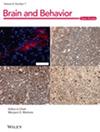The Montreal Cognitive Assessment (MoCA) is a brief screening instrument for detecting mild cognitive dysfunction, a precursor to many cognitive disorders, such as dementia, which have increased in prevalence globally. Qatar, a small high-income country, has the largest projected increase in dementia of any country in the Middle East. Yet no population-based norms for cognitive function are available to date.
As part of the first national cross-sectional study of mental health, a total of 395 Qatari and non-Qatari Arabs, 18–74 years of age, were evaluated face-to-face using the Arabic version of the original MoCA (version 7.1). We computed raw and demographically (gender, age in years, and four education categories) adjusted scores for the overall MoCA test and six domains (visuospatial, executive function, attention, language, delayed memory, and orientation). The percentile ranking of raw and adjusted normative (z) scores was computed. The 5th percentile ranking was used to derive potential cut-offs for the overall test and the six related domains.
Female gender, older age, and lower levels of education were associated with poorer overall test scores. The following MoCA overall test and domains cut-off scores (rounded to the nearest integer) were identified: MoCA (22), visuospatial (2), executive (2.5), attention (4), language (4), and delayed memory (3).
On the basis of our population-based data, scores below these 5th percentile cut-offs may warrant further testing and clinical follow-up for mild cognitive impairment (MCI) in otherwise healthy Arab adults.



